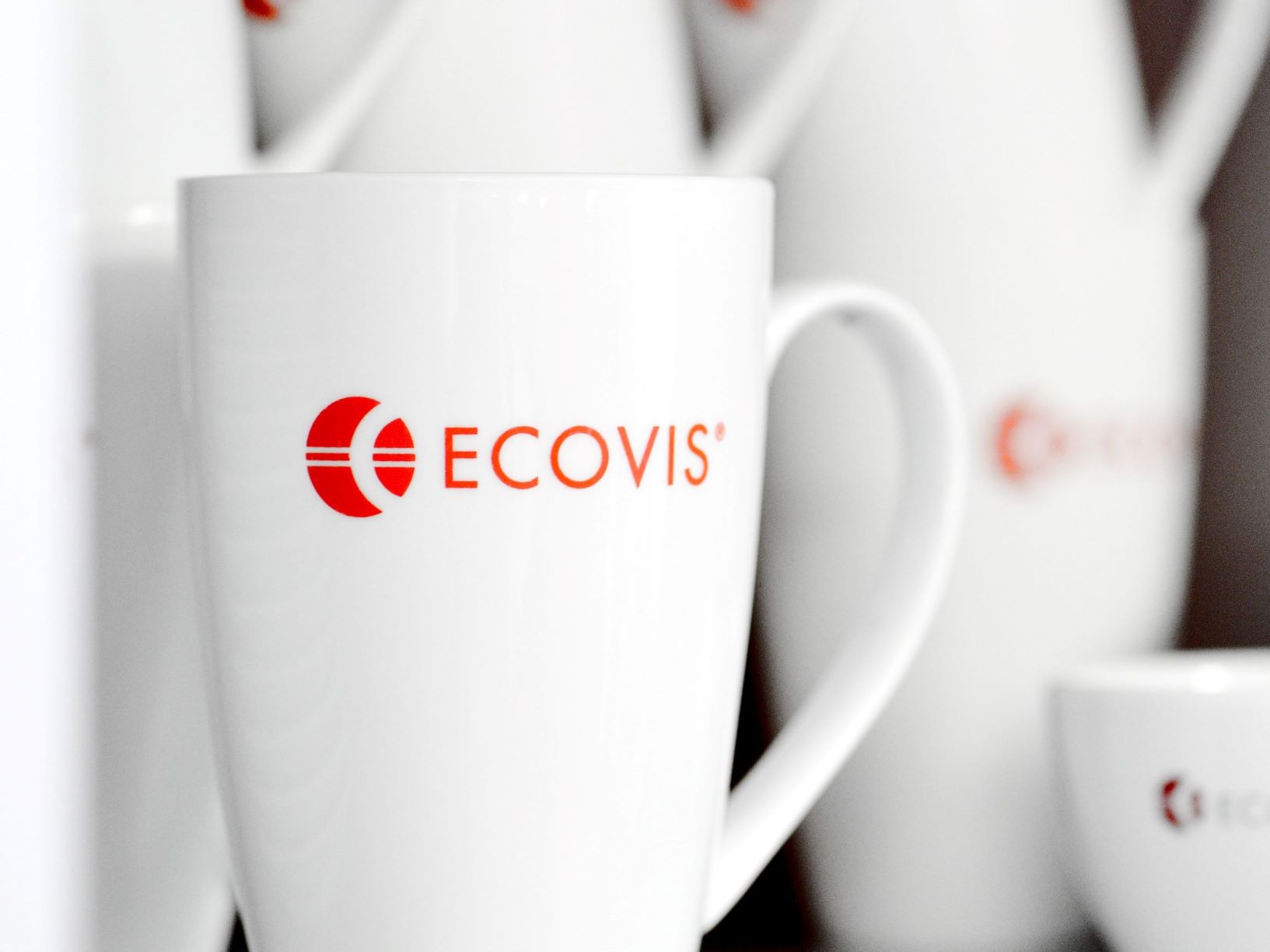The Significant Amendment of the Czech Business Corporations Act 2020
The Major Amendment of the Business Corporations Act in the Czech Republic
The an amendment to the Act No. 90/2012 Coll., Czech Business Corporations Act, as amended (hereinafter as the “Czech Business Corporations Act”, the unofficial English translation of the Czech Business Corporations Act) was published in the Czech Collection of Laws on February 13, 2020 and will become effective in the Czech Republic as of January 1, 2021.
Many of the proposed changes are related to the fact that the Czech Business Corporations Act is a new act, which has, in its first years of application, shown some legislative inaccuracies, gaps and interpretation issues. The amendment revises and supplements problematic provisions of the Czech Business Corporations Act, so that they can be used better in practice. The amendment also aims to lower the administrative and regulatory burden on the corporations, where so wide regulation is not necessary. Many duties, which are now obligatory for the corporations should be replaced by autonomy of the will of the business corporations and their bodies, which is supposed to be the main principle of private law area. Another part of the changes concerns a new regulation of a monistic system of a joint-stock company, that should be further comparable to the modern legislative regulation of the joint-stock companies in many European countries. Finally, the amendment should solve the problem of many "inactive" companies, and set out the rules on how should the authorities proceed, if they find out about such inactive company.
As in case of the previous changes of the Czech corporate law, corporations will be obliged to adapt their founding acts to the new regulation by January 1, 2022 and file them to the collection of deeds of the Czech Commercial Register. If the corporation fails to do so at latest by June 30, 2021, or if the corporation does not enter the information in the Commercial Register, which are obligatory registered under the new regulation, or if the corporation fails to deposit the deeds, which should be obligatory deposited in the collection of deeds according to the new regulation, the Commercial Register court shall notify the registered corporation and set out an additional reasonable period to fulfil the specific obligation. If the additional period expires in vain, the court, upon the notification of the Commercial Register court or a person who proves its legal interest, shall dissolve the corporation and order its liquidation.
The Law Firm ECOVIS ježek has prepared an overview of the most fundamental changes, that will be introduced to the Czech corporate law by the new amendment of the Czech Business Corporations Act from the beginning of 2021.
New possibility of deposit of the registered capital for the “low-cap” companies
Section 23 para. 1 of the Czech Business Corporations Act provides, in the current wording, that the shareholder's financial contribution to a capital company must be deposited on a special account with a bank or credit union, established by the administrator of the deposit. However, the legislature did not take into account the fact, that the Czech Business Corporations Act also permits the existence of so-called low-capital companies (i.e. under the Czech Business Corporation Act, the minimum contribution of a shareholder to a capital company is the amount of 1 CZK). In practice, after the establishment of a low-cap company, where the registered capital to be deposited represents, for example, only 1 CZK, it is necessary to open a special bank account for the deposit of the registered capital in the amount of 1 CZK. This means additional costs, as well as additional administration burden and more time spent on the matter. Although the amendment to the Czech Business Corporation Act retains the original rule, that cash contributions to the registered capital can only be deposited to a special bank account, subsequently it introduces the following exemption from this rule. Based on the the amendment it shall be possible, in cases where the amount of the registered capital (and therefore the deposited amounts) does not exceed CZK 20,000, to deposit the registered capital amount directly into the hands of the administrator of the deposit.
The limit of CZK 20,000 was chosen based on the former provisions of the Czech Commercial Code (valid December 31, 2013), under which the minimum amount of the financial contribution of a shareholder in the capital corporations was the amount of CZK 20,000. The main goal of the amendment is to reduce the administrative burden on business corporations, as well as to eliminate the over-regulation, where such regulation is not necessary. Therefore, from January 1, 2021, it should be possible to deposit the cash contributions of the shareholders of corporations, which registered capital does not exceed CZK 20,000, directly to the administrator of the deposit, which may be, for example, a notary or one of the future executives.
According to the explanatory memorandum to the amendment, the new legislation aims to make the establishment of the low-cap companies cheaper and faster in a way, that such company can be established within a single notary's visit.
New duty for legal entities elected to perform functions in the bodies of business corporations
Pursuant to the provisions of Section 154 of Act No. 89/2012 Coll., the Czech Civil Code (the “Czech Civil Code”, the unofficial English translation of the Czech Civil Code), it is possible for a legal entity (corporation) to perform a function in the supervisory or statutory bodies of a business corporation. The Czech Civil Code allows two option in this situation. A legal entity performing a function in the body of another legal entity shall appoint a natural person entitled to represent such legal entity when performing the function, or the legal entity shall be represented by a member of its statutory body (by an executive). When this legal frame is applied to the rules set out in the Czech Business Corporation Act, it might lead to the situation where the legal entity (corporation or cooperative) is represented by a member of its statutory body, which is also a legal entity. Under those rules, the elected legal entity can empower more than one natural person, and then there is no rules on whether those natural persons act as joint representatives or whether they act individually on behalf of the mandator (the legal entity).
With the application of aforementioned rules of the Czech Civil Code to capital corporations or business corporations in general, a relatively fundamental lack of transparency in the structure of the business corporation and its elected bodies can be created. In practice, a chain of legal entities can easily arise, and then it is very difficult to find out who is actually acting on behalf of these legal entities. The amendment to the Czech Business Corporations Act sets out the obligation of a legal entities, who performs the function in a statutory or supervisory body in a capital company or cooperative, to authorize without undue delay after appointment a single natural person, who meets the legal requirements and prerequisites for performing the function, to represent this legal entity while performing the function. If a legal entity elected as a member of the statutory or supervisory body of a capital company does not empower any natural person, it cannot be registered as a member of a company’s body in the Commercial Register. At the same time, the amendment regulates the termination of the legal person's function in company’s bodies, provided that the natural person is not empowered and registered in the Commercial Register within three months of the legal person's election to the statutory body of the capital company. Termination of the function of such legal entity, and subsequent deletion from the Commercial Register occurs by law, and therefore is completely independent on the will of the statutory body or the business corporation itself.
Deletion of certain information from the founding acts of capital companies after its registration
The current regulation in the Czech Business Corporation Act allows the capital companies to delete certain information Memorandum of Association or Articles of Association, which are included at the time of incorporation of capital companies. Specifically, it is possible to delete the information, which are no longer needed after the company is established, registered and the obligation to deposit the shareholder’s contributions to the registered capital has been fulfilled (in particular, it is information on the shareholders deposit obligation, election of the first members of the statutory body, the appointment of the deposit administrator or the valuation of a non-monetary deposit).
However, from a practical point of view, there is uncertainty as to whether or not such deletion of obsolete provisions from the founding acts is a change of the founding act itself. In the current wording, the Czech corporate law does not address this issue, and therefore, the practice is that deletion of these information from the founding act is the amendment of such founding act. To amend the founding act of the capital company is under the Czech corporate law possible only on the basis of General Meeting’s decision or by the agreement of all shareholders. Such decision or agreement must be, in all cases, certified by a public instrument (notarial deed), otherwise can be considered as a valid decision. This means several additional costs for capital companies. It is important to say, that since the Czech Business Corporation Act was published in 2012, a discussion among the corporate law experts started, whether or not is the deletion of these information a change of the founding act of the company or not. The amendment explicitly addresses this problem of interpretation, when expressly provides, that the deletion of such information is not considered to be an amendment to the founding act of the capital company. Furthermore, the amendment allows, that the founding act of the capital company (i.e. the Memorandum of Association, or the Articles of Association) to entrust the decision to delete such information from the founding act to the statutory body of the capital company.
Major turn in the current mandatory ban on the transfer of a share in a private partnership
The possibility to transfer a share in a private partnership (in Czech: “osobní společnost”) was a question addressed already under the former Czech Commercial Code. The Czech Supreme Court ruled, in the decision from September 23, 2008, File No. 29 Cdo 646/2008, that the change of shareholders in the private partnership as a result of the share purchase contract, is not possible. The Czech Supreme Court accepted the change in the private partnership’s shareholders only through the amendment of the Partnership Agreement (the founding act), when one shareholder withdraws from the partnership, and a new shareholder accede. The current legislation effective as of January 1, 2014 took over the approach of the Czech Commercial Code and the opinion of the Czech Supreme Court, and the transfer of a share in the private partnership is expressly prohibited in Section 116 of the Czech Business Corporation Act. Considering the joint and several liability of the partners of the partnerships for the partnership's obligations, this rule is, in principle, a logical consequence of the personal nature of a private partnership. Despite this conclusion, the amendment to the Czech Business Corporation Act permits the transfer of a share in a private partnership. The legislator does not consider this fundamental change as an interference with the personal nature of a private partnership, as the new wording of the Czech Business Corporation Act still requires the consent of all other shareholders to such transfer of the share. At the same time, the transferor of the share is liable, by the virtue of law, to the company for all debts that have been transferred to the transferee in connection with the transfer of the share, and the transferor - the former shareholder - becomes the guarantor by the virtue of law. From the legislator's point of view, this change should make the regulation of private partnerships more open, flexible and cost-saving, taking into account the fact that a share transfer will be possible under a share purchase contract, without a need to change the Partnership Agreement. According to the explanatory memorandum to the amendment, the main argument for this change is that the replacement of a partner in a private partnership is possible also under the current legislation, but only through the institute of withdrawal of the partner, and the accession of another partner. This change is then possible only by amending the Partnership Agreement. At the same time, it is necessary to determine the severance balance of the withdrawing partner on the basis of extraordinary financial statement, which may represent, for the larger companies, considerable costs of tens of thousands of Czech crowns.
Amendment of the Partnership Agreement of the private partnerships
The current wording of Section 99 para. 1 of the Czech Business Corporation Act provides, that the Partnership Agreement may be amended only by agreement of all partners. Where the certain amendment of the Partnership Agreement shall affect the rights of any partner specifically, the Section 99 para. 2 requires the consent of the partner, whose rights shall be affected. This provision prove to be problematic within its practical application, as the Section 99 para. 1 can be understood either as a mandatory provision, according to which the amendment of the Partnership Agreement is possible only by agreement of all partners, and it is not possible to modify this rule by the Partnership Agreement itself. Under the second interpretation, this provision can be considered as disposable, precisely with reference to the Section 99 para. 2, and therefore, the Partnership Agreement can be amended by a decision of partners with the majority of votes. However, as soon as the intended change shall affect the rights and obligations of a certain partner, the consent of that partner is mandatory.
The presumption of the mandatory nature of the Section 99 para. 1 was based in particular on the wording "only by the agreement of all partners". Based on the practical application of this provision, the legislature concluded that its mandatory nature is not convenient, and the autonomy of the will of the parties must be respected. Therefore, the amendment proposes to delete the problematic word “only” from the wording of Section 99 para. 1. After the January 1, 2021, it should be possible to set out in the partnership agreement, that its change can be made by the decision of the partners with majority of votes, while such majority may be determined as a simple or qualified majority.
Business management of private partnerships
Since the date of effectiveness of the Czech business Corporation Act, there is an unclear interpretation as to whom, in the private partnerships, the business management of such partnership belongs to. The provision of the Section 106 of the Czech Business Corporation Act can be interpreted in two ways. According to the first interpretation, the business management of a private partnership belongs only to its statutory body. The second interpretation maintains that, in view of the nature of the partnership, the business management and administration of the partnership belongs to all of its partners, who fulfil the legal conditions to be a member of an elected body of a legal entity.
The amendment to the Czech business Corporation Act provides a rule, that the business management of the private partnership belongs to every partner, who is a member of a statutory body. By the virtue of law, all partners are members of the statutory body, unless the Partnership Agreement provides otherwise. The designation of the statutory body member under the Partnership Agreement may be changed by its amendment, i.e. either by the agreement of all partners, or with the consent of the partners with the majority of votes, if provided in the Partnership Agreement. At the same time, those provisions enshrine the right of the supreme body of a partnership to give instructions to the statutory body by a decision taken by a majority vote, in relation to business management. This maintains the fundamental principle of private partnership, according to which all partners are principally involved in the management and administration of the partnership, but at the same time, this arrangement allows only some partners to be entrusted with business management on ordinary matters, while the control of other partners is retained.
Possibility to claim invalidity of a resolution of the supreme body of a private partnership by a partner
The current legislation allows to the shareholders of the capital companies to file for declaration of invalidity of a General Meeting resolution in a court. The Czech Business Corporation Act does not include this adjustment in the provisions regarding the private partnerships.
Pursuant to Section 108a para. 1 of the amendment to the Czech Business Corporation Act, any shareholder or liquidator should be allowed to invoke the nullity of a decision of the supreme body pursuant to the provisions of the Czech Civil Code on nullity of the decision of the body of the private association. However, it is not anticipated that, given the nature of the partnership, it would be appropriate to take over the institute of protest, which must precede the file for declaration of invalidity of the General Meeting's resolution within the capital companies. Therefore, the proposed regulation for private partnerships does not include the institute of protest.
Reducing of costs for capital companies within the voting “per rollam”
The current legal regulation of decision-making per rollam (i.e. the decision-making outside the General Meeting) can lead to a relatively expensive and complicated process for capital companies in cases, where the resulting decision of the General Meeting have to be in the form of a public document (notarial deed). In such cases, each separate vote by each shareholder have to be executed in the form of a notarial deed, which, in the case of a greater number of shareholders, may mean significant additional costs. Pursuant to Section 175 para. 3 and Section 419 para. 2 of the amendment to the Czech Business Corporation Act, it should be sufficient to execute the public document with the decision to be made, and distribute a copy to all shareholders.
Executive contract with the member of the statutory body
The amendment introduces several relatively fundamental changes in relation to the executive contract. First change shall be with regard to the consequences of the failure to approve a executive contract by the supreme body of a capital company. The current legislation does not explicitly regulate the consequences of the failure to approve the contract, but in view of the provision of Section 59 para. 2 of the Czech Business Corporation Act, it can be inferred that the non-approval of the executive contract results in its relative nullity under Section 48 thereof (given that the concerned person invokes such invalidity). This means, however, that the non-approved executive contract remains in force until it is declared null and void. The invalidity may be invoked within six months from the date when the concerned person became aware, or should have been aware of such invalidity (subjective period), but no later than ten years from the date of execution of the executive contract (objective period). Thus, in practice, the statutory body member could have been performing the function of the executive for almost ten years on the basis of an executive contract, which was subsequently declared null and void. In that case, any legal action of such statutory representative on behalf of the company could be challenged.
The amendment explicitly stipulates that, without the approval of the supreme body (i.e. of the General Meeting), the executive contract
cannot become effective. Once the executive contract is approved, it becomes effective to the date of its conclusion, or to the date of commencement of the function of a member of the executive body, whichever date is later.
The explanatory memorandum to the amendment states, that this change is to be adopted in order to simplify the application practice. However, this rule is designed as a dispositional, and the supreme body of the company may choose another date as the day of effectiveness of the executive contract.
Performance of the function of the member of an elected body without remuneration
Pursuant to the current wording of a Section 59 para. 3 of the Czech Business Corporation Act, "Unless remuneration is agreed in accordance with this Act, the performance of the function is free of remuneration." The amendment to the Czech Business Corporation Act specifies, that this rule shall apply only in relation to capital companies.
The current legislation also reflects the cases, where the executive contract becomes invalid for a reason caused by a business corporation itself (or cases, where such contract is not approved by the General Meeting without unnecessary delay after the appointment of a new member of an statutory body). In such cases, the member of the statutory body has right to remuneration in the amount equal to the circumstances, place and time with regard to the function of such member of the statutory body. The amendment extends this provision, so that the abovementioned right on the equal remuneration for the function performed is also applicable in cases, where the executive contract is invalid due to force majeure, or for any other reason independent on the will of the member of the statutory body, whose contract has become invalid. (or did not become effective under the new provision of Section 59 para. 3 of the amendment wording of the Czech Business Corporation Act, cf. above). The extension of the provision aims to protect the members of the statutory bodies of a capital companies, which cannot be required to perform their functions without the right to the remuneration. In particular, the extension with force majeure in general, without limitation on whether force majeure caused the invalidity (ineffectiveness) of the executive contract due to the actions of the business corporation, or a member of a statutory body himself. The second added reason covers other obstacles arising independently of the will of a member of a statutory body. This is a residual category of all other reasons, for which the rule on the performance of function without the right to remuneration shall not apply. Hence, any obstacles that arise, irrespective on the will of a member of the statutory body of a capital company, which will in the end prevent the validity or effectiveness of the executive contract, will henceforth be a reason, which establish the right of the member of the statutory body to receive the equal remuneration for the performance of his/her function.
The provision of Section 59 of the Czech Business Corporations Act should, in the wording proposed by the amendment, expressly regulate any possible conflict between the executive contract and the founding deed. The current regulation do not directly address this possible conflict. The amendment provides a general rule, that in the event of a conflict between the provisions of the founding deed and the executive contract, the provisions contained in the founding deed shall apply. That way, the will of the shareholders expressed in the founding deed cannot be circumvented. However, this does not apply if the executive contract is approved by the majority of shareholders, which is also required for the amendment of the founding deed. Given such approval, the general rule of the priority of the provisions contained in the founding deed is broken, and the provisions from the executive contract will prevail. The reasoning behind this regulation is that the protective function of the general rule of founding deed priority ceases to have its meaning, when the executive contract is approved by a majority, which would be sufficient also to amend the founding deed.
Wages and other benefits provided to the employee, who is subsequently a member of an statutory body, or to the person associated with such employee
The Business Corporations Act, in its current wording, provides in Section 61 para. 3, that wage and other benefits provided to the employee, who is subsequently also a member of the company's statutory body, or to a person associated with such employee, can be provided only with the approval of the body authorized to approve the executive contract. The amendment repeal this provision without any compensation.
The fact is, that the provision of Section 61 para. 3 is a relic of an unaccepted provision of the Czech Business Corporations Act, which was intended to regulate the concurrence of several functions of a member of the statutory body in one company. Although the original provision was not adopted, its part concerning the approval of remuneration arising out of the employee-employer relationships remained and, in addition, was extended also to the activities outside the company's business management, and even covered the wages and benefit of the persons associated to the members of the statutory bodies. Although it is true that its application may lead to a number of absurd situations, the possible conflict of interest in approving the remuneration of either a member of the company`s statutory body itself or of a person associated to such statutory body member cannot be overlooked.
In this context, the explanatory memorandum to the amendment refers fully to the rules provided for conflict of interest in the Section 54 et seq. of the Czech Business Corporations Act, which stay unaffected by the amendment, and the legislator considered them as sufficient in this respect. However, the situation is not as clear-cut, considering that to conclude the contract between the company and the member of its statutory body (or with a person associated to such member), only information delivered to the supervisory body, or to the supreme body is required under the rules on conflict of interest. Consequently, the conclusion of the contract is not a subject of approval, but merely a notification. Based on such notification, the conclusion of the contract can be prohibited. Therefore, for such contract not to be concluded is required the active approach of the supervisory or supreme body of the company. In addition, the wording of Section 57 of the Czech Business Corporations Act excludes the applicability of rules on conflict of interest to contracts concluded in the ordinary course of business, which is also the very important aspect that cannot be overlooked. On the other hand, the obligation of a member of a statutory body to act in accordance with the proper manager`s care applies, and in case of any damage cause by the company due to the breach of such proper managerial care shall be redeemed by such member of the statutory body.
New regulation of the monistic internal structure of the joint-stock companies
Another fundamental change introduced in the amendment to the Czech Business Corporation Act is definitely the new concept of a monistic internal structure system of the joint-stock companies. The new regulation, contrary to the present regulation, should reflect the traditional regulation of the monistic internal system of joint-stock companies known from the legal systems of many other European countries.
The amendment to the Czech Business Corporation Act should abolish the function of the statutory director within the monistic internal structure of the joint-stock company. Therefore, the only obligatory bodies to be established in a joint-stock company of such structure would be, from the January 1, 2021, the General Meeting and the Supervisory Board. The Supervisory Board would thus be responsible both for the company's business management and for overseeing the company's activities. This should avoid unclear interpretation regarding the position of the Supervisory Board vis-à-vis the statutory director, including disputes on the allocation of powers and responsibilities between the two bodies of the company. According to the current legislation, it is not possible to determine unequivocally which provisions enshrined in the dualistic system of a public joint-stock company are to be applied also to the companies with the monistic internal structure. Based on the wording of the amendment, the regulation of the monistic joint-stock companies should be in the special provisions, which should contribute to increasing legal certainty for all entities, including joint-stock companies themselves.
According to the amendment, the Supervisory Board of a joint-stock company should, as a rule, have three members, unless the Statute of the company set out a higher number. For the joint-stock companies with a sole shareholder, an exception is provided, and the one-member Supervisory Board is allowed. The Statute may specify a lower number of a members of the Supervisory Board than the three members laid down as the general rule. At the same time, it can be assumed that the provisions on codetermination will not apply to public joint-stock companies with a monistic internal structure, as they will already be regulated separately.
New procedural rules to deal with the “inactive” corporations
The amendment also aims to eliminate the existence of many inactive business corporations registered in the Czech Commercial Register, or at least significantly reduce their number. Effective sanctions against inactive business corporations, which in most cases will result in the deletion of such business corporation from the Czech Commercial Register, should reduce or at least hinder such cases of tax fraud in which inactive business corporations are abused as so-called “white horses”. The fact that they generally have no recoverable assets from which their eventual debts can be paid up, as well as the inability to trace a particular individual who manages such business corporation and who could be held accountable (in criminal and also in non-criminal proceeding) leads to the factual deny of any responsibility. The amendment should therefore not only increase the transparency of the business environment and reduce the risk of frauds in the Czech Republic, but also improve law enforcement and avoidance of liability for tax (or other) frauds.
Another goal of the amendment is to "clean up" the Czech Commercial Register from inactive business corporations, and increase the completeness of the collection of deeds of the Czech Commercial Register, which, according to the assessment of the Ministry of Justice, has been for a long time at an alarmingly low level. The Ministry of Justice assumes that, by introducing effective sanctions against inactive business corporations which do not file their annual financial statements in the collection of deeds, business corporations will generally be more attentive to fulfil all of their legal obligations, and therefore will also regularly file annual financial statements in the collection of deeds of the Czech Commercial Register.
According to the wording proposed by the amendment, it will be possible to penalize an inactive business corporation under two conditions, fulfilled cumulatively. First, business corporation breach its obligation to submit both ordinary (annual) and extraordinary financial statements (or annual reports that include financial statements) to the collection of deeds of the Commercial Register for at least 2 consecutive financial years and, secondly, such corporation is impossible to contact. The obligation to submit both ordinary and extraordinary financial statements of the business corporation in the collection of deeds is set out in the Section 21a of the Czech Accounting Act, and is also presumed in Section 66 letter. a) and c) of the Czech Public Register Act; the statutory period to submit such financial statements is 12 months from the balance sheet date of the published financial statements.
The impossibility to contact a business corporation aims to reduce the numbers of corporations registered with the so-called virtual seats, which many business corporations use for a long period of time, instead of just a transitional period. Therefore, these business corporations cannot be contacted through their registered seat address, as such address is not the actual place of their business. A business corporation can be considered as a contactless, if it is not possible to deliver a notice to submit the missing financial statements to the collection of deeds. The court will have to follow the rules of delivery according to the Czech Civil Procedure Code, when delivering such notice, i.e. they will primarily deliver the notice to the business corporation via a data box. If the business corporation does not log into the data box within 10 days, there is no fiction of delivery - alternative delivery of the notice is excluded due to the mere seriousness of the consequences of such fiction.
The court will have to try using other methods of delivery specified in Section 45 of the Czech Civil Procedure Code; the last method of delivery is essentially through the postal operator – straight to the virtual seat of the company. If the business corporation does not submit ordinary or extraordinary financial statements requested in such notice to the collection of deeds, but at the same time, it is possible to deliver the notice, a fine up to the amount of CZK 100,000 will be imposed pursuant to Section 104 of the amended wording of the Czech Business Corporation Act.
However, if both of the abovementioned conditions are met, the court will initiate, without any petition, the proceeding in the dissolution of the business corporation; the information of such proceeding shall be entered in the Czech Commercial Register pursuant to the new wording of Section 48 para. o) of the Czech Business Corporations Act, which stipulates that the information on initiation of the proceeding against the business corporation under the Section § 105a of the Czech Business Corporations Act (i.e. ex-offo dissolution of the corporation for not submitting the financial statements in the collection of deeds, while staying contactless). The registration of this information in the Commercial Register shall ensure the higher protection of the third parties, as it will be possible to dissolute a business corporation without liquidation at earliest 1 year after the information of the intention to dissolute the corporation without liquidation is entered into the Commercial Register. This does not apply when there is the insolvency proceeding initiated.
In the event that a concerned person is found within this one-year period, and prove to the court that the business corporation has assets exceeding the costs associated with the liquidation, the court shall decide to dissolute the business corporation with liquidation.
If no concerned person notifies the court about any assets of a business corporation, such business corporation can be assumed as the inactive business corporation with no assets. After the consideration, whether the dissolution of a business corporation without liquidation will not substantially affect the rights of any third parties, the court may dissolute the business corporation without liquidation; the court shall record the deletion of the business corporation on its own motion, on the basis of the decision to dissolute the business corporation without liquidation. If the assets of a business corporation appear after its deletion from the Commercial Register, the Section 209 of the Czech Civil Code shall apply. Therefore, the court shall revoke the deletion of the business corporation and decide on its liquidation.
For more information, contact us at:
JUDr. Mojmír Ježek, Ph.D.
ECOVIS ježek, advokátní kancelář s.r.o.
Betlémské nám. 6
110 00 Praha 1
e-mail: mojmir.jezek@ecovislegal.cz
www.ecovislegal.cz
About ECOVIS ježek advokátní kancelář s.r.o.
The Czech law office in Prague ECOVIS ježek practices mainly in the area of Czech commercial law, Czech real estate law, representation at Czech courts, administrative bodies and arbitration courts, as well as Czech finance and banking law, and provides full-fledged advice in all areas, making it a suitable alternative for clients of international law offices. The international dimension of the Czech legal services provided is ensured through past experience and through co-operation with leading legal offices in most European countries, the US, and other jurisdictions. The Czech lawyers of the ECOVIS ježek team have many years of experience from leading international law offices and tax companies, in providing legal advice to multinational corporations, large Czech companies, but also to medium-sized companies and individual clients. For more information, go to www.ecovislegal.cz/en.
The information contained on this website is a legal advertisement. Do not consider anything on this website as legal advice and nothing on this website is an advocate-client relationship. Before discussing anything about what you read on these pages, arrange a legal consultation with us. Past results are not a guarantee of future results, and previous results do not indicate or predict future results. Each case is different and must be judged according to its own circumstances.














